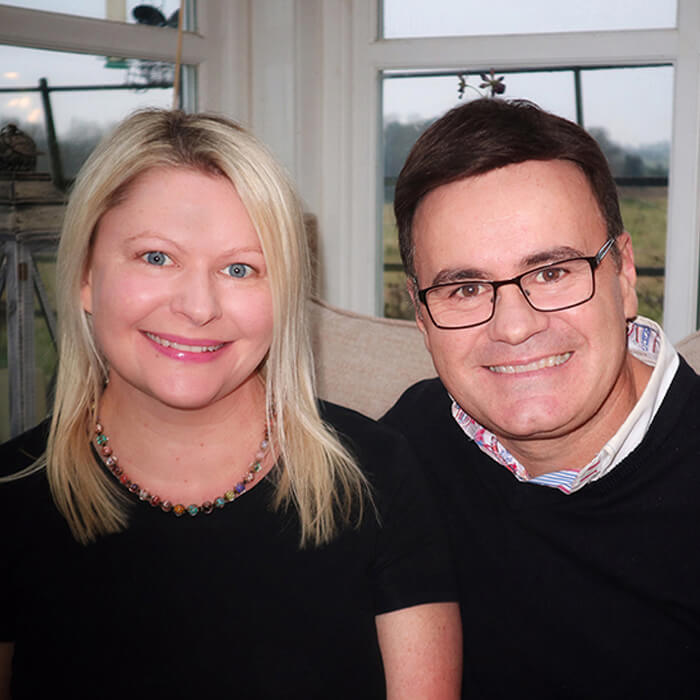Are you blocking yourself from playing bigger?
Have you ever considered what your “default emotion” is? I’d not heard the term before, nor had I even placed any thought on the matter, until I came across an interview with Nisha Moodley, a women’s leadership coach. She says we each have default emotions − some people get sad easily, or angry or confused; often this is a way of escaping the discomfort of what we are facing, whether it be a conflict, fear of change or moving forward.
We’re all up to big things these days. We have big ideas on what we want to create for our families, businesses and lives. While I believe anything is possible, that large void of potential can be scary at times.
Those who know me understand I’m often doing crazy things, making wild manoeuvres away from my perfectly-fine comfort zone. I do wish I could sit still, but my mind − like yours − conjures big things, and I find myself making significant changes every few years in an attempt to pursue these ideas, hopes and dreams. Those of you who don’t know me personally have probably worked this out about me though, based on what I write and blog about.
I mention it, not to advocate making wild changes, nor to preach that change can be positive. I bring it up, because I know first-hand that while change more often than not leads to something amazing, it can be tough. Whether it’s self-imposed or change that has been thrust upon you, it requires time, perseverance and sometimes, a lot of deep breaths to move through, until you get to that place where you realise you’ve made it, and you smile.
So, “default emotions”. They usually run rampant when we’re in a period of flux. Mine were at play recently when things were spinning around; change and choices flying at me swiftly. I could feel myself blocking it all with self-doubt and fear. I rationalised reasons for not trying things, rather than reasons why I should go for (or deal with) it. Interestingly, Nisha warns us to get familiar with such emotions and associated reactions. When you feel them creeping in, learn to recognise the emotions, and check to make sure they’re not emerging in response to something which needs to be managed or overcome (fear, doubt, guilt, anxiety etc.).
By being able to recognise these signs, Nisha explains, we can learn to not let blocks stop us from “playing bigger”. Sometimes your default emotion(s) will prevent you from taking the next − possibly daunting, but potentially game-changing − step forward in life, love or career.
How to get through your own road-blocks? Nisha suggests we need to reconnect with what she calls “your North Star”, a combination of “WHY for you and WHY for the world.” That is, “Your ‘why for the world’ is what really inspires you and calls you into action (e.g. better education for all children, animal rights), and the ‘why for you’ is what personally inspires and calls you into action (e.g. do you long to write, create, nurture…?).”
The best bit about Nisha’s advice is she reminds us to stop trying to work it all out alone. Instead, touch base with friends and mentors who can quite often and easily help you move through confusion or worry, and remind you of what your strengths are, and what life adjustments are likely to complement you as an individual. “Develop your sisterhood, seek advice, share openly (the good and the bad), ask for assistance; help each other,” Nisha says.
What better moment than Christmastime to round up the girls for a brainstorm and heart-to-heart!
Soon it will be a new year, a time generally associated with change and goal setting. The notion of big change might not be where you’re at, or maybe you’re like me and you’ve just reached a particular milestone and presently looking around mystified and thinking, “OMG, what now?!”
An option I’ve embraced is to go back to basics. Slow down, breathe, take baby steps, and reconnect with people (in person, not online). Avoid overwhelm by focussing on just one important thing you need to do each day which will move you closer to “your North Star”. Stop to assess those “default emotions” too, and consider the outcome surrounding your potential next steps. That is, if you were to remove fear, doubt and confusion from the equation, what decision(s) would you really make? Upon reflection, you’ll likely realise, as I have, that you are the one who has kept you playing small. It’s safe in that space, sure, but it’s the only thing stopping you from achieving your “more”.
The interview discussed:
By Sarah Blinco. Originally published in Get it Magazine, December 2014



